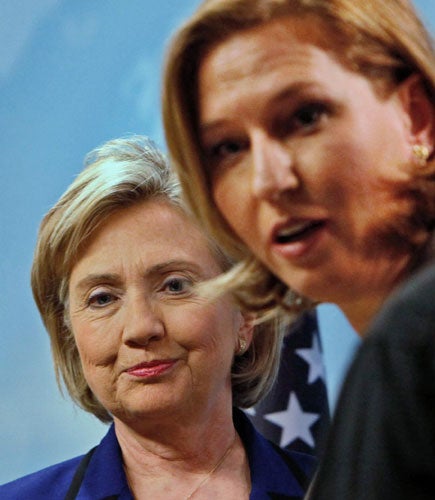US envoys to be sent to Damascus as relations with Syria begin to thaw

Your support helps us to tell the story
From reproductive rights to climate change to Big Tech, The Independent is on the ground when the story is developing. Whether it's investigating the financials of Elon Musk's pro-Trump PAC or producing our latest documentary, 'The A Word', which shines a light on the American women fighting for reproductive rights, we know how important it is to parse out the facts from the messaging.
At such a critical moment in US history, we need reporters on the ground. Your donation allows us to keep sending journalists to speak to both sides of the story.
The Independent is trusted by Americans across the entire political spectrum. And unlike many other quality news outlets, we choose not to lock Americans out of our reporting and analysis with paywalls. We believe quality journalism should be available to everyone, paid for by those who can afford it.
Your support makes all the difference.The United States will send two officials to Syria soon for "preliminary conversations" which could mark the beginning of a thaw in the three-year-old freeze in relations between the two countries.
Hillary Clinton, the new US Secretary of State, who briefly met the Syrian Foreign Minister, Walid al-Moallem, in Egypt on Monday, announced the decision to send an official delegation to Damascus after meeting the Israeli Foreign Minister, Tzipi Livni, in Jerusalem. She told a news conference: "We have no way to predict what the future with our relations concerning Syria might be. There has to be some perceived benefit of doing so for the United States and our allies and our shared values. But I think it is a worthwhile effort to go and begin these preliminary conversations."
Shortly afterwards, the US embassy announced in Damascus that Jeffrey Feltman, the top State Department official dealing with the Middle East, would head the delegation, and said that the visit was intended to build on his "substantive and constructive" meeting last month with Syria's ambassador in Washington, Imad Moustapha.
The Bush administration pulled its ambassador out of Damascus in 2005 in protest at Syria's strongly suspected role in the assassination of the former Lebanese prime minister, Rafik Hariri. The US has previously accused Syria of not doing enough to prevent foreign fighters from crossing its border into Iraq and, like Israel, heavily criticised it for supporting militant groups such as Hizbollah and Hamas.
Mrs Clinton – while pledging Washington's "unrelenting" support for Israel's security – also warned that pursuit of a two-state solution to the Israeli-Palestinian conflict was "inescapable". Although she emphasised that the US would work with whatever Israeli government emerged from negotiations this could be read as a warning to Prime Minister-designate Benjamin Netanyahu who has so far refused to sign up to the notion of a Palestinian state.
Ms Livni has for far resisted overtures to join a Netanyahu government on precisely those grounds. But the Likud leader, after meeting Mrs Clinton, insisted that the two politicians had found "a common language".
Join our commenting forum
Join thought-provoking conversations, follow other Independent readers and see their replies
Comments